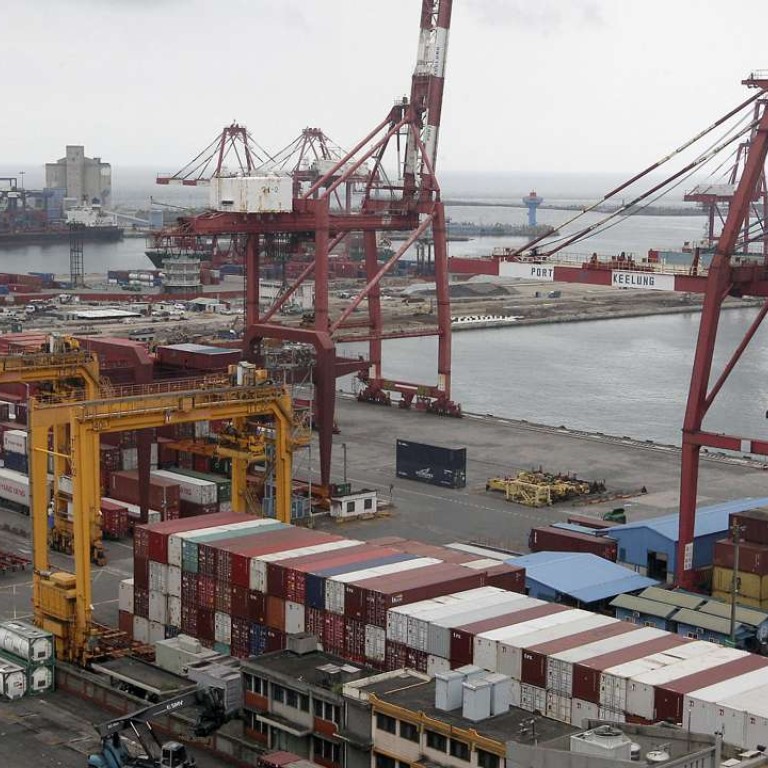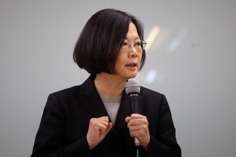
New | Plenty of economic challenges ahead for Taiwan’s new president
Tsai Ing-wen plans to boost ties with Asean and India, but analysts say it won’t be easy to switch from reliance on cross-strait trade
Taiwanese President Tsai Ing-wen won’t have time for a honeymoon period when her government rolls into operation for the first day on Friday.
She is facing an even bigger challenge than her Kuomintang predecessor Ma Ying-jeou in reviving the island’s long-sagging economy, analysts say.
Tsai, of the independence-leaning Democratic Progressive Party (DPP), has said she plans to introduce five innovative research projects to stimulate the local economy, covering green technology, the internet, biomedicine, intelligent machinery and national defence.
We need to turn Asean into an extension of Taiwan’s domestic market as soon as possible
She also plans to increase Taiwan’s economic exchanges with members of the Association of Southeast Asian Nations and India in order to cut the island’s economic reliance on the mainland.
However, analysts predict little chance of success for at least two years. And they warn the island’s economy might become even grimmer than it was under Ma due to the possibility of economic snubs from Beijing.
Tsai replaced Ma as the island’s leader on Friday following her crushing victory in January’s presidential election.
She has criticised Ma’s cross-strait economic policy, saying he had placed too much emphasis on the mainland over the past eight years, leading to the island’s overreliance on the mainland market.

Taiwan’s exports to the mainland now account for 40 per cent of its total exports – compared with between 35 per cent and 45 per cent under Ma’s predecessor, the DPP’s Chen Shui-bian – with two-way trade worth US$190 billion last year, up from US$110 billion at the end of Chen’s presidency, which ran from 2000 to 2008.
That shows Taiwanese businessmen sensed the market was in the mainland even before Ma opened up trading ties, but the wealth generated has not been evenly distributed among the general public, with large business groups benefiting most. That upset middle-class and grass-roots people on the island, with election experts saying their dissatisfaction was the main reason Ma lost the election.
To promote a change in direction, Tsai recently named a former foreign minister, James Huang, to head her “New Southbound Policy Office”.
“We need to turn Asean into an extension of Taiwan’s domestic market as soon as possible,” Huang, who served as foreign minister from 2006 to 2008 during the final years of Chen Shui-bian’s presidency, told a forum introducing the policy initiative on Tuesday.
“If we don’t seize the opportunities in the next five years, we will be left with no interests at all.”
Huang said that unlike the island’s previous “southbound” policy, introduced by then president Lee Teng-hui in the 1990s and later pursued by Chen, which focused on investment and trade, the new one would emphasise the absorption of talent and bilateral exchanges.

“Instead of just tapping their markets, we also want their people and their investments in our innovative industries, such as biomedicine,” Huang said.
But analysts and industrialists have doubts about the effectiveness of the policy – at least for the next two years.
“Businessmen are known for their business sense to look for profits and if they think profits are really there, they should have long gone to Asean instead of clinging to the mainland market,” said Sun Yang-ming, a former vice-president of the Cross-Strait Interflow Prospect Foundation, an independent think tank in Taiwan.
He said the new policy was a politically motivated attempt to twist normal market behaviour.
“I am afraid our economy might turn even worse in the next two years, given her plan to cut reliance on the mainland,” he said. “Besides, even if the new measure works, it will take at least a couple of years to show effects. But can the general public wait?”
An opinion poll released by Taiwan Think-Tank on Tuesday showed that 56.6 per cent of Taiwanese people hoped improving the economy would be Tsai’s priority on taking office. The island’s gross domestic product declined for the third consecutive quarter between January and March, with exports falling for the 15th straight month in April amid a global slump in demand.
A recent Ministry of Finance report showed the Ma government would be handing over a total debt of NT$5.7 trillion (HK$1.36 trillion) to the new government, something that is likely to become a heavy burden for Tsai.
Joyce Lin Juo-yu, director of the Asean Studies Centre at Tamkang University in Taipei, said approaching Asean members would be a “stiff challenge” for the Tsai government, given that Beijing – which had a great deal of influence in Southeast Asia – was also introducing its “one belt, one road” economic infrastructure initiative to woo the same countries.
“It is more important for the new government to show where the beef is if it is to launch this policy,” she said.
Taiwanese businessmen, however, are more concerned about Tsai’s plan to cut reliance on the mainland, fearing that it could lead to economic snubs from Beijing, including pressure aimed at curtailing Taiwan’s participation in regional economic affairs.
“I can see hard times coming if we have to cut our business exchanges with the mainland,” said Tien Yi-show, chairman of the Taiwan Travel Industry Association. “And the tourist industry here will be the first to suffer seriously,” he said, referring to an expected reduction in the number of mainland visitors, which topped 4 million last year.
Steve Lai, executive director of Taiwan’s Supply Management Institute, said: “Transformation of our industries cannot happen instantly, and before that we need the mainland market dearly.”

